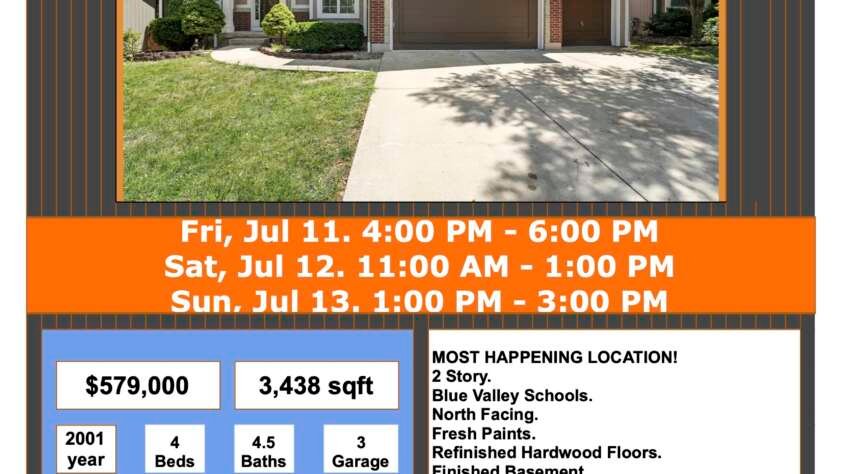
When it comes to buying a home, most people focus on the big-ticket items—purchase price, monthly payment, maybe even furniture costs. But there’s one sneaky number that can quietly cost you tens of thousands of dollars over time: mortgage interest.
If you’re preparing to buy, understanding how interest works could be the difference between a smart investment and an expensive mistake. This article breaks down the role of interest in your mortgage and how to make sure you’re not leaving money on the table.
What Mortgage Interest Really Is
Mortgage interest is the cost you pay to borrow money from a lender. You’re not just repaying the money you borrowed (called the principal)—you’re also paying a percentage of that amount in interest over time.
And while a few percentage points may not seem like a big deal at first, over the life of a 15- or 30-year loan, it adds up to a massive number.
Why Monthly Payment Isn’t the Full Story
It’s tempting to focus only on your monthly mortgage payment. But here’s the truth: two buyers can have the exact same payment, yet one might pay far more in interest over time because of their rate.
A lower interest rate doesn’t just save you money each month—it helps you build equity faster and reduces your total cost of homeownership.
Ask for a Loan Breakdown
Before you commit to a mortgage, ask your lender to provide a full breakdown of:
- How much of your monthly payment goes toward principal vs. interest
- The total amount of interest you’ll pay over the life of the loan
- How making extra payments could reduce your interest costs
Understanding this breakdown helps you see the big picture—and spot opportunities to save.
How Interest Rates Affect Buying Power
When rates go up, your budget goes down. Even a small increase in interest can reduce your purchasing power by tens of thousands of dollars.
If you’ve been pre-approved for a certain amount, double-check how changes in interest rates might affect what you can realistically afford.
Don’t Just Accept the First Rate Offered
You don’t have to go with the first rate a lender gives you. Shop around. Ask about fees, terms, and whether you can buy points to reduce your rate. A little negotiation up front can lead to long-term savings.
Your interest rate is one of the most powerful tools in your homebuying strategy—treat it that way.
Final Thoughts
Mortgage interest is more than just a line item on your loan—it’s a major factor in your long-term financial health. Understanding how it works—and how to minimize it—can help you buy smarter, save more, and build equity faster.









 A level is crucial for ensuring your walls, doors, and framing are straight and even. A 4-foot level is a great all-purpose tool, while a 6-foot level is excellent for setting doors and rough framing. Smaller levels, like 1- or 2-foot ones, are perfect for hanging artwork and shelves.
A level is crucial for ensuring your walls, doors, and framing are straight and even. A 4-foot level is a great all-purpose tool, while a 6-foot level is excellent for setting doors and rough framing. Smaller levels, like 1- or 2-foot ones, are perfect for hanging artwork and shelves. A framing hammer makes nailing tasks easier, thanks to its sturdy steel head and light wooden handle. The textured head prevents slipping, making it an essential tool for framing. However, you’ll also need a finishing hammer for smoother, more delicate tasks.
A framing hammer makes nailing tasks easier, thanks to its sturdy steel head and light wooden handle. The textured head prevents slipping, making it an essential tool for framing. However, you’ll also need a finishing hammer for smoother, more delicate tasks. If you have a project requiring hundreds of nails, a nail gun is a must-have. Most nail guns are pneumatic and require an air compressor, but you can rent both from your local hardware store if you’re not looking to buy.
If you have a project requiring hundreds of nails, a nail gun is a must-have. Most nail guns are pneumatic and require an air compressor, but you can rent both from your local hardware store if you’re not looking to buy. A reliable drill is one of the most useful tools in any household. For basement finishing, having both a corded and cordless drill is ideal—corded drills offer more power for tough materials, while cordless drills provide flexibility for quick fixes and screw-driving tasks.
A reliable drill is one of the most useful tools in any household. For basement finishing, having both a corded and cordless drill is ideal—corded drills offer more power for tough materials, while cordless drills provide flexibility for quick fixes and screw-driving tasks. Demolition and construction create a lot of dust and debris, making a shop vac a must-have for cleanup. Unlike regular vacuums, a shop vac is built to handle large debris, dust, and even water spills—making it an invaluable tool throughout your basement renovation project.
Demolition and construction create a lot of dust and debris, making a shop vac a must-have for cleanup. Unlike regular vacuums, a shop vac is built to handle large debris, dust, and even water spills—making it an invaluable tool throughout your basement renovation project.









 Exclusive message from #KCdesiPartner Krishna Realtor
Exclusive message from #KCdesiPartner Krishna Realtor